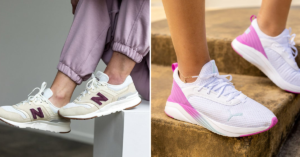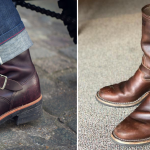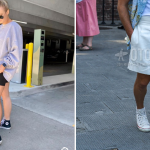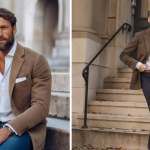There are various types of sustainable fashion certifications available for brands to showcase their commitment to eco-friendly practices. One well-known certification is the Global Organic Textile Standard (GOTS), which ensures that textiles are made with organic fibers and meet strict environmental and social criteria from production to labeling. Another popular certification is Blue sign, which focuses on the use of sustainable materials, resource efficiency, and worker safety throughout the supply chain. These certifications provide consumers with assurance that the products they are buying have been produced in an environmentally and socially responsible manner.
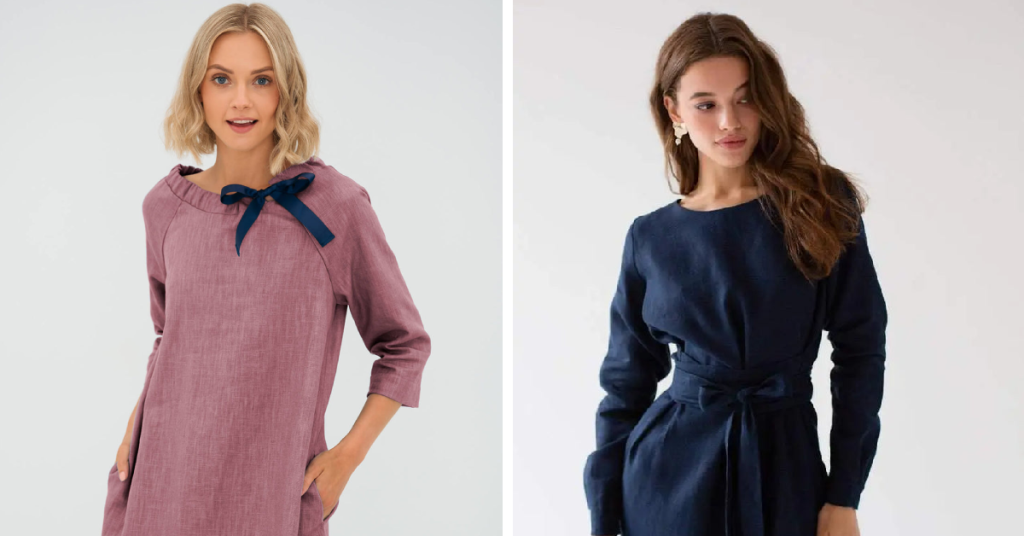
In addition to GOTS and Bluesign, there are other certifications like OEKO-TEX Standard 100, which ensures that textiles are free from harmful substances, and Fair Trade Certified, which guarantees fair wages and safe working conditions for workers in the fashion industry. Each certification has its own set of criteria and standards that brands must adhere to in order to be certified. By choosing products from brands that have obtained these certifications, consumers can make a positive impact on the environment and support companies that prioritize sustainability and ethical practices.
Understanding the Criteria for Each Certification
Sustainable fashion certifications vary in their criteria, with some focusing on materials used, others on production processes, and some on social responsibility. For example, the Global Organic Textile Standard (GOTS) places a strong emphasis on the use of organic fibers and environmentally friendly production practices. On the other hand, the Fair Trade certification ensures that workers involved in the production chain are paid fairly and work in safe conditions.
Each certification body sets its own standards and criteria for evaluating sustainable fashion practices. This means that brands seeking certification must adhere to specific guidelines and requirements to be awarded the certification. Understanding the unique criteria for each certification is essential for brands looking to establish their sustainability credentials and for consumers looking to make informed choices about the products they purchase.
Benefits of Choosing Certified Sustainable Fashion Brands
When you opt for certified sustainable fashion brands, you’re not only upgrading your wardrobe but also supporting ethical and environmentally-friendly practices. By choosing these brands, you contribute to reducing water and energy consumption, decreasing pollution, and minimizing waste in the fashion industry. This means that you can feel good about your purchases knowing that you’re making a positive impact on the planet.
Moreover, certified sustainable fashion brands often prioritize fair labor practices and support workers’ rights throughout their supply chain. This ensures that the individuals involved in producing the clothes you wear are treated ethically and paid fairly for their work. By supporting these brands, you’re advocating for social justice and contributing to a more equitable fashion industry.
Identify Certified Sustainable Fashion Products
When it comes to spotting certified sustainable fashion products, keep an eye out for specific labels or logos that indicate a product meets certain environmental or ethical standards. Look for familiar certifications like Fair Trade, GOTS (Global Organic Textile Standard), OEKO-TEX, or the Sustainable Apparel Coalition’s Higg Index. These labels are usually displayed prominently on clothing tags or packaging, making it easier for consumers to make informed choices.
Another way to identify sustainable fashion products is to do some research on the brand or product itself. Check out the company’s website or visit their social media pages to see if they provide information about their sustainability practices. Look for details on their use of eco-friendly materials, ethical production processes, or commitment to fair labor practices. Brands that are transparent about their sustainability efforts are more likely to have certified products that align with your values.
The Impact of Sustainable Fashion Certifications on the Environment
Sustainable fashion certifications play a crucial role in reducing the environmental footprint of the fashion industry. Through these certifications, brands are encouraged to adopt eco-friendly practices in their production processes, such as using organic materials, minimizing waste, and reducing energy consumption. By meeting the stringent criteria set by these certifications, brands can significantly decrease their negative impact on the environment, paving the way for a more sustainable future.
Furthermore, sustainable fashion certifications enable consumers to make more informed decisions about the products they buy. By choosing items from certified brands, individuals can support environmentally responsible practices and contribute to the preservation of our planet. This shift towards eco-conscious shopping not only encourages brands to prioritize sustainability but also raises awareness about the importance of reducing the fashion industry’s environmental harm.
Why Consumers Should Look for Certified Sustainable Fashion Brands
When it comes to shopping for new clothing items, consumers nowadays are becoming more aware of the environmental impact of their purchasing decisions. With terms like “fast fashion” and “sustainability” popping up everywhere in the fashion industry, it’s no wonder that people are starting to pay more attention to the origins of their clothes.
Choosing certified sustainable fashion brands can be a great way for consumers to align their values with their shopping habits. By opting for brands that hold certifications for their sustainable practices, shoppers can feel more confident that they are supporting businesses that prioritize eco-friendly production methods and ethical labor practices. It’s not just about looking good in your new outfit; it’s about feeling good knowing that your clothes were made with the planet and people in mind.
Common Misconceptions About Sustainable Fashion Certifications
One common misconception about sustainable fashion certifications is that they are just a marketing gimmick used by brands to attract eco-conscious consumers. However, this is not entirely true. While some brands may misuse certifications for greenwashing purposes, the majority of certified sustainable fashion brands undergo rigorous evaluation processes to ensure they meet specific environmental and ethical standards. These certifications serve as a way for consumers to make informed decisions about the products they purchase, helping them support businesses that prioritize sustainability.
Another misconception is that sustainable fashion certifications are only relevant for high-end or luxury brands. In reality, there are certifications available for brands across various price points and market segments. From small independent labels to fast-fashion retailers, many companies are taking steps to become more sustainable and obtain certifications to validate their efforts. This demonstrates that sustainable fashion is not limited to a specific niche but is a growing movement within the industry that aims to promote transparency and accountability.
Steps for Brands to Obtain Sustainable Fashion Certifications
So, you’re a brand looking to jump on the sustainable fashion train, huh? Good on you for wanting to make a positive impact! To obtain those coveted sustainable fashion certifications, the first step is to conduct a thorough assessment of your current practices. Take a deep dive into your supply chain, production processes, materials sourcing, and overall environmental impact. Identify areas where you can make improvements and start making those changes. Transparency is key here – be upfront about your practices and show that you’re committed to sustainability.
Next up, it’s time to align your brand with recognized sustainable fashion standards and certifications. Do your research to find out which certifications resonate the most with your brand values and target audience. Whether it’s GOTS for organic textiles, Fair Trade for ethical production, or B Corp for overall sustainability commitments, choose certifications that align with your brand’s ethos. Once you’ve selected the certifications you want to pursue, reach out to the respective organizations to understand their criteria and requirements. Work closely with them to ensure that your brand meets all the necessary benchmarks and standards. Remember, it’s not just about ticking boxes – it’s about genuinely embracing sustainability in every aspect of your brand.
The Future of Sustainable Fashion Certifications
As sustainability continues to gain importance in the fashion industry, the future of sustainable fashion certifications looks promising. With consumers becoming more conscious of their purchasing decisions, brands are under increasing pressure to demonstrate their commitment to ethical and eco-friendly practices. This shift towards transparency and accountability is driving the demand for credible certifications that can validate a brand’s sustainability claims.
In the coming years, we can expect to see a rise in innovative certification schemes that take a more holistic approach to sustainability. These certifications will not only focus on environmental impact but also encompass social and ethical considerations. By addressing issues such as fair labor practices, supply chain transparency, and diversity and inclusion, these certifications will provide consumers with a more comprehensive understanding of a brand’s sustainability efforts.
Tips for Supporting Sustainable Fashion through Certifications
Looking to make a positive impact through your fashion choices? Start by looking out for sustainable fashion certifications when shopping for your next wardrobe pieces. Certifications like GOTS, Fair Trade, and B Corp can help you distinguish brands that prioritize ethical and eco-friendly practices. By supporting these certified brands, you’re not only contributing to a greener future but also encouraging the fashion industry to be more transparent and accountable.
When in doubt, do some quick research online to learn more about the certifications that matter to you. Follow sustainable fashion influencers on social media or check out ethical fashion blogs for recommendations on certified brands. By staying informed and staying connected with like-minded individuals, you’ll feel more confident in your sustainable fashion choices and inspire others to join you on the journey towards a more ethical and eco-conscious wardrobe.
FAQs about Sustaining Fashion Certifications
What are some common misconceptions about sustainable fashion certifications?
Some people think that sustainable fashion certifications are just a marketing tactic, but in reality, they help to ensure that brands are meeting specific environmental and ethical standards.
How can consumers identify certified sustainable fashion products?
Look for labels or tags that indicate a brand has been certified by a reputable organization. You can also do some research online to find out more about different certification programs.
Why should consumers choose certified sustainable fashion brands?
By choosing certified sustainable fashion brands, consumers can support ethical practices, reduce their environmental impact, and encourage other brands to follow suit.
How can brands obtain sustainable fashion certifications?
Brands can obtain sustainable fashion certifications by meeting the criteria set by certifying organizations, undergoing audits or assessments, and demonstrating their commitment to sustainability.
What is the future of sustainable fashion certifications?
The future of sustainable fashion certifications looks promising, as more consumers are becoming aware of the importance of ethical and sustainable practices in the fashion industry. This will likely lead to an increase in demand for certified sustainable products.
Conclusion
Sustainable fashion certifications are often misunderstood as marketing tactics, but they play a crucial role in ensuring brands meet specific environmental and ethical standards. Contrary to the belief that these certifications are only for luxury brands, they are accessible across various price points. Additionally, achieving certification is not simple; it requires rigorous assessments and a genuine commitment to sustainability.
Consumers can identify certified sustainable fashion products by looking for labels like GOTS or Fair Trade on clothing tags and researching brands online. By choosing certified brands, consumers support ethical practices and reduce their environmental impact, making a meaningful difference in the fashion industry.


